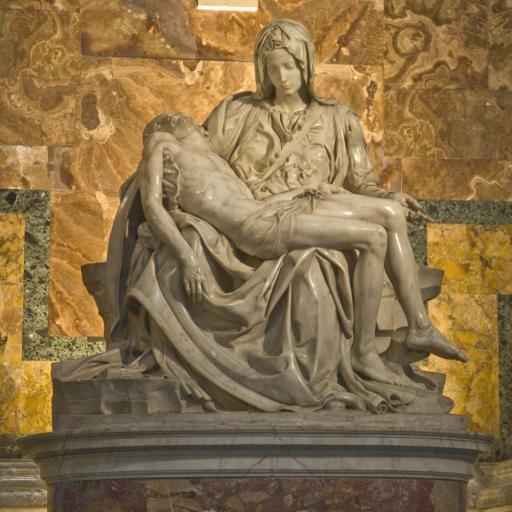Pieta |
|||||||||
|---|---|---|---|---|---|---|---|---|---|
| Primary Creator |
|
||||||||
| Contributor(s) |
|
||||||||
| Properties |
|
||||||||
| Name of Work | Pieta | ||||||||
| Production Date | 1500 | ||||||||
| Production Location |
|
||||||||
| Current Location |
|
||||||||
| Media Types | marble | ||||||||
| General Notes | Probably was started in 1498 but finished about 1500. Was commissioned by a French Cardinal for his own funerary monument, but eventually was placed in St. Peter's at the Vatican. | ||||||||
Description
Portrays Mary holding the dead Jesus after his crucifixion. Highly realistic, highly finished work of marble sculpture on a monumental scale. It is life size, but seems greater in some respects, since Mary appears bigger than her adult male son. Exhibits the classical beauty and naturalism that was an ideal of the Renaissance that Michelangelo was so instrumental in developing.
Theme
Recognition and acceptance of a great personal loss.
Emotional Sum or Sense-of-life
Resignation in the face of tragedy.
Context Information
Tags
Jesus, religion, Virgin Mary

Scale

Discussion
- Log in to post comments
Also Acceptance And Suggestion Of Transcendence Of Suffering?In Mary's face I see the acceptance, and in the position of her left hand, I see an accepting gesture. The quiet composure of her face gives me a hint of rising above the terrible event. Could be I'm reading that into the piece, though acceptance-leading-to-transcendence also fits with the Christian-metaphysics element of the work's subject.